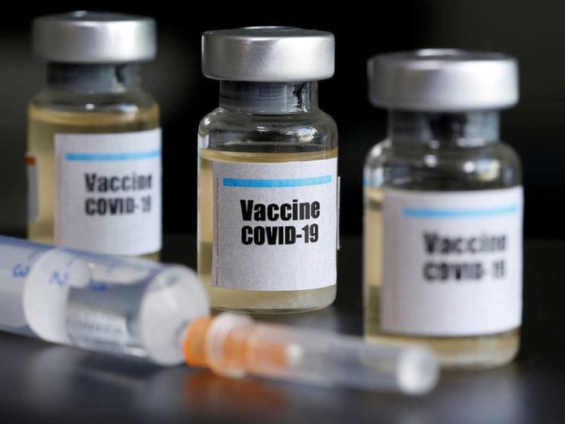“The oldest and the strongest emotion of mankind is fear and the oldest and strongest kind of fear is fear of the unknown” (H.P LOVECRAFT)
The above sums up the atmosphere in Ghana before the arrival of the COVAX–sponsored AstraZeneca COVID–19 vaccines. The much-anticipated vaccines were welcomed, on 24 February 2021, amidst mixed feelings.
Social media platforms were rife with excitement, speculations and fear-mongering alike among Ghanaian users.
Concerns about the safety and efficacy of the vaccines persist despite the assurances of President Akufo–Addo and campaigns by medical professionals across the country to debunk conspiracy theories surrounding the vaccines.
Whiles the SARS-CoV-2 virus which caused the Covid-19 pandemic may be novel, conspiracy theories surrounding the virus are not. Indeed, the earlier months of the pandemic were dominated by speculation about the origins of the virus.
Rumours that bat consumption caused the virus led to a spike in Sinophobic attacks in the United States and several European countries.
The proliferation of misinformation did not abate and with time the enduring myth of the pandemic developed - the claim that Covid-19 is linked to 5G.
This claim was ushered into mainstream discourse via social media by celebrities such as Amir Khan and Woody Harrelson.
It is therefore imperative that the efforts to encourage vaccination are well executed.
In West Africa, this conspiracy theory was peddled by the renowned preacher, Pastor Chris Oyakhilome who dedicated sermons to propagating the myth.
Extant research has debunked any connection between 5G frequencies and the virus and has shown, contrariwise, that 5G may be instrumental in the fight against the virus.
Nonetheless, a deficit of merit has unfortunately not been any impediment to the propagation of these conspiracy theories which have spurred attacks on cell towers and telecommunications engineers, especially in the Western world.
The introduction of vaccines late last year was met with more speculation.
There were claims that the vaccine would alter the DNA of recipients or even infect them with the virus itself and a revised version of the 5G theory claimed that the vaccines contained a microchip, sponsored by Bill Gates and linked to cell towers via 5G technologies as a means of population surveillance.
The result of these conspiracy theories is a high rate of vaccine scepticism.
In Wisconsin for instance, a pharmacist purposely sabotaged 57 vials over the holidays because he thought the vaccine would change people’s DNA.
In Ghana, vaccine scepticism is mainly linked to a belief that the COVAX facility is a trial version and Ghanaians are going to be used as guinea pigs.
These reservations are not wholly unfounded as there exists a precedent for unlawful trials in the sub-region in the 1996 Kano trovafloxacin trial which caused 5 deaths and several injuries which Pfizer finally settled out-of-court for USD 75 million in 2009.
Ironically, some Ghanaians are sceptical of the AstraZeneca vaccines as they have not been approved in the United States which opted for the Pfizer and Moderna vaccines.
These concerns have produced a suboptimal vaccination rate with only 0.11 vaccines administered per 100 people since vaccination started on 3rd March.
A lot has to be done to convince the citizens to patronize the vaccination, thus, live broadcast of the vaccinations of the president, politicians and some religious figures is a welcome step.
These efforts could be further strengthened by a concerted government effort, through the National Commission for Civic Education (NCCE), to address misinformation concerning the vaccines via new and traditional media thus ensuring that correct information on the side effects and other relevant information about the vaccine permeate all spheres of Ghanaian society.
Further, influential persons who have taken the first dose of the vaccine should be encouraged to share their experience after taking the vaccine through videos and voice notes on Social Media platforms thereby reclaiming an avenue through which misinformation on the vaccines is spread.
Additionally, large social media platforms should be persuaded to rapidly take down accounts that amplify fake news on their sites to check the spread of misinformation.
The government may explore legislation that imposes fines on influential people who create fake news regarding the vaccine or amplify existing conspiracy theories.
****
The author, Rockson Obeng is a student at Simon Fraser University, Canada
Latest Stories
-
ORAL team receives first dossier of ¢500m National Service ghost names scandal
10 minutes -
AfroFuture’s Culture Beach Jam comes off Dec. 28 & 29
13 minutes -
NDC gov’t to address first quarter expenditure after January 7 – Ato Forson to Ghanaians
25 minutes -
Man sentenced to 5 years for vandalism at Parliament
47 minutes -
Art for development: Isaac Koney tells his story
1 hour -
“I prayed for it” – Lady appreciates Joy Prime, Peace Bridals for free wedding gown
1 hour -
CEO Network Ghana pay courtesy call on Mahama
1 hour -
Lady Rhoda features Minister Igwe on new single ‘Thank You’
1 hour -
Labadi Beach Hotel secures court injunction against Polo Beach Club
1 hour -
Vezsel Music releases debut single ‘Asa Papa’ off upcoming ‘Joy In The Morning’ EP
2 hours -
National Security Task Force assures EC of security to continue re-collation
2 hours -
We are ready for “24 Hour Economy” policy provided there is the needed incentives – business associations
2 hours -
K-pop continues to rise on Nigerian music charts
3 hours -
Sanlam Allianz launches DreamBuilder to boost financial protection for Ghanaians
3 hours -
Alan leads Alliance for Revolutionary Change to call on President-elect John Mahama
3 hours

